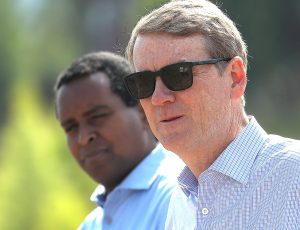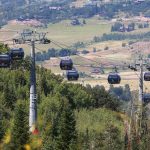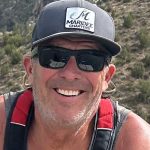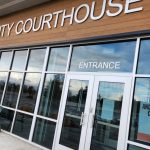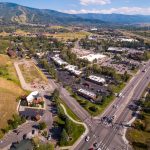Sen. Bennet, Rep. Neguse face tough questions at Steamboat Springs town hall

John F. Russell/Steamboat Pilot & Today
Sen. Michael Bennet and Rep. Joe Neguse confronted tough questions from Routt County residents during a town hall in Steamboat Springs late last month, as locals aired anxieties around housing, immigration policy, environmental protection and the current condition of democracy in the U.S.
Bennet and Neguse — in town for the Colorado Water Congress along with Gov. Jared Polis, Colorado Attorney General Phil Weiser and Sen. John Hickenlooper — took the opportunity on Aug. 19 to engage directly with locals, addressing their concerns with candid assessments of political challenges facing both Colorado and the nation.
On immigration and the DOJ
Questions over immigration and ICE raids prompted frank responses from both leaders. Neguse condemned mass deportation policies, arguing they lack public support and destroy families.
“There’s not a single person I’ve spoken with, irrespective of their political affiliation, who believes that it is in our interests as a country to rip apart families, people who have known no other country but the United States as their home, and ship them off to foreign prisons,” Neguse said.
Bennet highlighted a missed policy window for an immigration reform bill in 2013 that would have provided a pathway to citizenship for 11 million undocumented people — an initiative that had bipartisan support at the time, but was never brought to a House vote due to internal division.
Both Democrats acknowledged that reform is stalled for the foreseeable future given current leadership in Washington, D.C.
“We’re going to have to remind the American people what it looks like to have an immigration policy that’s committed to the rule of law and who we are as a nation of immigrants,” said Bennet. “I think we can do that, and I think we will do that, but it will never happen as long as Donald Trump is at 1600 Pennsylvania.”
Attendees also raised concerns about the integrity of the Justice Department and law enforcement.
Neguse lambasted the politicization of police and the normalization of “dangerous” and “shameful” conduct, referring to U.S. Attorney General Pam Bondi as “weaponizing” the Department of Justice “to an extent that we just have not seen … in modern history.”
“We’re in the minority in the House, right? And so while we do have some procedural tools available to us, they are not as robust as they would be if we were in the majority,” said Neguse, who then pointed to current efforts through budget appropriations to push for accountability.
Both Bennet and Neguse said the ratification of troubling executive behaviors in the U.S. Senate sets a worrisome precedent.
“The precedents they are setting, and the precedents that they are breaking simultaneously, ought to frighten Americans,” Neguse said.
On the environment, healthcare and housing
On healthcare, Bennet and Neguse repeatedly cited the negative effects of federal policies under the Trump administration, particularly since the July 4 passing of the “One Big Beautiful Bill.”
Neguse referred to the Medicaid cuts set under the bill as having “devastating” effects statewide, especially for rural areas like Moffat and Rio Blanco counties.
“You have families who are going to be living through the consequences of the SNAP (Supplemental Nutrition Assistance Program) cuts — these draconian, cruel SNAP cuts that Senator Bennet fought against on the Agriculture Committee,” said Neguse. “A lot of Coloradans and a lot of Americans writ large don’t necessarily know what’s coming.”
Bennet referred to the housing crisis as the most acute problem facing Colorado, describing it as broad, multifaceted and in urgent need of locally grounded solutions.
“I don’t care whether you can call yourself a progressive or a conservative — if our kids can’t afford to live in our state, there’s a real problem here,” he said.
“We’ve got to figure out how to build much more housing in Colorado. We’re going to have to do it more cheaply, and we’re going to have to do it near where people live in order to deliver for the next generation of Colorado,” Bennet continued. “We can’t just treat it like it’s beyond our control.”
He was clear that the state’s existing approach to housing was insufficient, and that meeting this challenge would require “really tough decisions.”
Environmental concerns turned the focus to climate change, threats to public lands and the cutting of wind and solar tax credits.
“It was incredibly painful to watch 15 years of work — for some people, 25 years of work — go down the drain when all those tax credits that I’ve worked on all these years on wind and solar with the finance committee were eviscerated in a bill that, honestly, was even worse than most people imagined it would be,” said Bennet.
Bennet added that the reversal of these credits, a cornerstone of Colorado’s renewables growth, was consistent with Trump’s energy policies during his presidential campaign, even if most Americans favor stronger climate action.
On a more hopeful note, Neguse cited recent attempts from U.S. Sen. Mike Lee of Utah to sell off millions of acres of public lands that failed only due to massive public pushback.
“(Lee) failed, not once, not twice, but three times in the span of nine days during the debate on this terrible bill, and … it didn’t happen by accident. It didn’t happen by osmosis,” said Neguse. “It was a byproduct of citizens from across the country, including here in Routt County and elsewhere, making their voices heard through sufficient outcry and vociferous opposition.”
“For all of you who might be feeling a little bit hopeless … I would hope that you just take that piece of encouragement that your voice matters,” he added.
‘No master plan’
Residents pressed the officials for reassurance that Democrats had a cohesive strategy heading into the 2026 and 2028 elections. The answers were blunt.
Neguse admitted there was no “master plan” — only the work of coalition-building and responding to ongoing attacks on political norms. Bennet criticized the party’s messaging, noting it failed to connect to voter frustrations around health, education and economic insecurity.
Both officials acknowledged a breakdown in congressional function, where legislative output now amounts to little more than defense and reconciliation spending bills.
Asked what ordinary people can do to make a difference, Neguse encouraged folks to “keep calling,” even if it feels redundant.
“We might agree and have the same worldview on a wide variety of issues, we might not, but even in so far as we do agree, it helps us from a prioritization standpoint,” he said.
Neguse also urged audience members to “spread the word” about the harmful effects of the current executive administration, noting that some Americans are unaware of the “full picture” of the political consequences that will inevitably impact them directly.
Bennet urged continued organizing and face-to-face conversations, but he emphasized that change will not come quickly or easily.
“Sometimes people say to me, ‘When’s this going to be over?'” said Bennet at the close of the town hall. “The answer is, we’re going to be doing this for the rest of our lives. That’s the honest answer.”

Support Local Journalism

Support Local Journalism
Readers around Steamboat and Routt County make the Steamboat Pilot & Today’s work possible. Your financial contribution supports our efforts to deliver quality, locally relevant journalism.
Now more than ever, your support is critical to help us keep our community informed about the evolving coronavirus pandemic and the impact it is having locally. Every contribution, however large or small, will make a difference.
Each donation will be used exclusively for the development and creation of increased news coverage.

